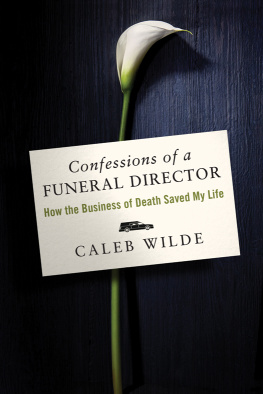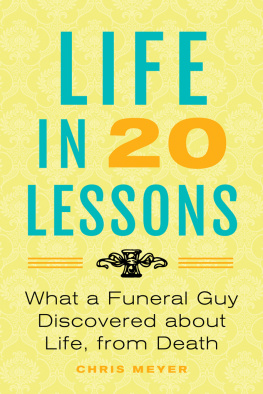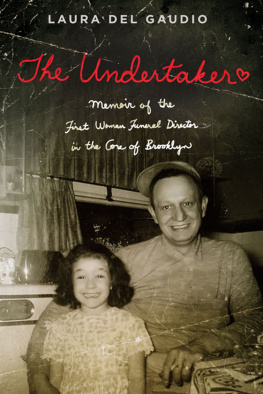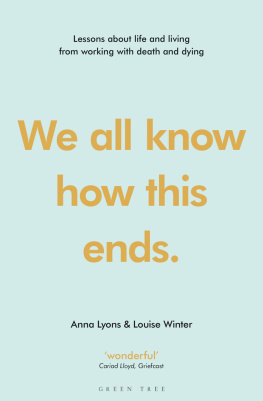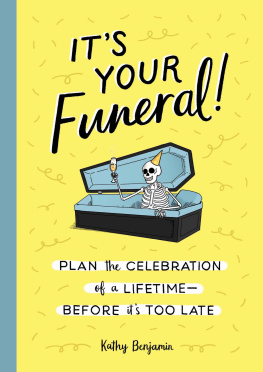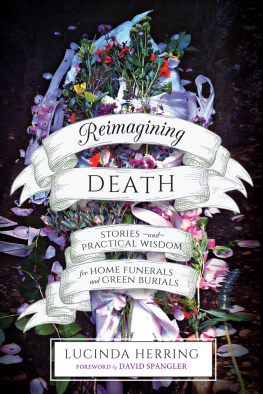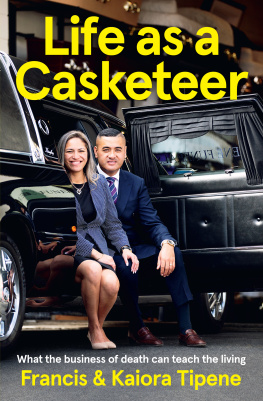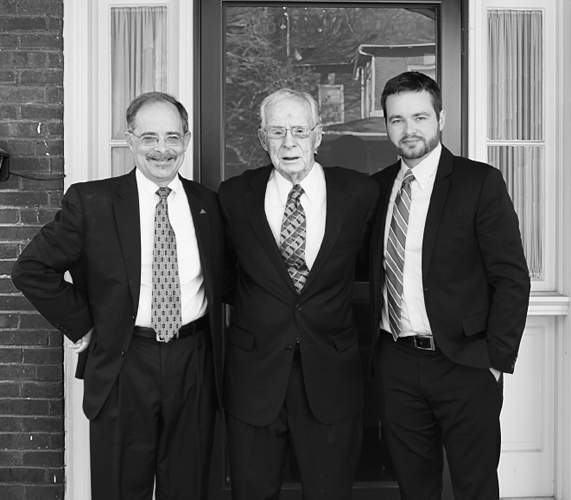I t was nearly six in the morning when I heard the sounds of hovering helicopters a couple hundred yards away from my house. At the time, my wife, Nicki, and I lived in a small half of a double on the farthest fringe of the Borough of Parkesburg. While the occasional helicopter could be heard in Parkesburg proper, our little house on Upper Valley Road was sandwiched by the sounds of the trains that ran on the tracks a hundred feet from our small backyard and the speeding cars on Upper Valley a mere twenty feet from our front door.
I peeked my head outside the window but couldnt see the machines that were producing the sounds I could so clearly hear. The idea that something must be very wrong entered my mind. I turned on the television, and sure enough, the Philadelphia station I turned on had a Breaking News update. The rhythmed and practiced voice of the news anchor read the prompter with all the outward concern he could exercise: Two young boys and their aunt and uncle died in a fiery car crash outside of Parkesburg, Chester County, late last night.
Parkesburg is an hour outside of Philadelphia. Were the small town of thirty-five hundred that claims Philadelphia as our closest big city while Philadelphia has no idea we even exist, except when something horrific happens. This morning, Parkesburg had made the news. Today, Philadelphia reporters descended upon Parkesburg to fill their 6 A.M. quota.
There have been a few times when Facebook has informed me of a death before the family has called us at the Wilde Funeral Home. But this was the first time I had turned on the television and watched aerial footage of a disaster that was soon to be passed on to me. When I got to the funeral home later that morning, I learned we were the ones entrusted to handle the services for all four of the deceased. The two adults (the aunt and uncle of the boys, who were babysitting the boys at that time) were to be cremated, while the boys, eight and ten years of age, were to be embalmed and viewed, depending on the condition of their bodies.
The following dayafter the coroner performed her dutyI drove our van to remove the two adults first (our removal van comfortably fits two in the supine position). After I dropped them off at the funeral home, I jumped back in the van to pick up the bodies of the two boys. When I go on these tragic calls, Ill usually either sit in silence or find some upbeat music on the radio to distract me from the void. It can be anything: Pop music. Oldies. Katy Perry.
After driving the bodies home, it was my duty to unzip the body bags for the two boys to see if their faces could be made presentable for a public viewing. The smell of burnt human flesh is somewhat distinct. Its not like the smell of barbecuing chicken or a pig on the spit. It sticks to your hair, to your clothing, and when I opened those bags, what I saw will forever stick in my mind. Youve seen the Hollywood versions of burn victims, and its all horrible, but the visuals we see on the TV screen dont do justice to these tragic deaths. Tragic deaths have a presence about them, something that cant be captured by the makeup and advanced special effects. All deaths have a type of presence, but tragic deaths have a presence that fills a room. I dont know if I believe in ghosts, but I do believe that the dead have some kind of aura.
I had to look at the boys faces to determine whether or not we could have a viewing, hoping to find a visage that couldthrough hours of workbe presentable to the family. Unfortunately, I didnt find what I was looking for and had to inform their stricken parents that a public viewing was outside of our ability, whichin a wayproduces a small sense of guilt in me. Whether the pressure is from an inward or an outward expectation, theres always this nagging feeling that we should be able to restore any form of disfigurement, that embalmers should possess some Harry Potter magic in our prep room and magically wave our trocar (a large needle-like instrument we use during embalming) while chanting Abracadabra, pulchra cadaver and then poofwe have beautiful corpses. But there is no magic trocar. And there are no mystical chants.
The family was broken in more ways than one. They were fighting about who would officiate the service. One part of the family wanted a nonreligious service while the other side wanted a Christian service. Threats were made. Words were spoken that should never be spoken, and we had to involve the police. The day before the service a police officer came to the funeral home to go over the plan of action if the funeral became volatile.
As we were going over the funeral procession route with the officer, I collapsed and momentarily lost consciousness; the policeman called the ambulance, and I was taken to the hospitals emergency room with what would later be generically diagnosed as physical exhaustion.
On my way to the hospital, not knowing what was happening to me, I had a moment of unshackled clarity: Did I want to continue working in this profession? Was this what I wanted to do? Is this who I wanted to be?
MONTHS BEFORE I FOUND myself in the back of that ambulance, watching the strobe lights bounce off nearby houses and road signs, I found myself struggling with depression and compassion fatigue. My doctor had prescribed me antidepressants to combat the day-to-day experience of depression, but there wasnt anything rejuvenating my burnout. Life lost its value. I lost empathy. And the boundaries that stood between me and self-harm became fragile.
The first couple years of working at the funeral home, I felt like a duck swimming in deep water. From the outside, I was calm, confident, and natural, but underneath, I was kicking furiously against the darkness. Although I knew what I was getting into when I joined the funeral business, it wasnt my closeness to death that was destroying me, it was how I viewed it. I saw death as a certain kind of darkness that needed religion and some degree of flat-out denial to make it ever so slightly lighter and brighter. I assumed that theres nothing good in death. If someone had suggested to me then that theres beauty in death, that theres goodness in death, that death could inspire a healthy spirituality, I would have thought them both morose and naive.
Even though I had grown up around death, I was just as susceptible as anyone to what I call the death negative narrative that so many of us have come to believe. On a practical level, I had seen too many tragic, traumatic, and horrific deaths portrayed on TV, on the Internet, and at work. These extremes had normalized the bad deaths so that I had come to think all deaths were bad. Its not entirely my fault that I had bought into the death negative narrative. Tragic death sells news. Its great clickbait. It keeps the cycle rolling. But in normalizing the extremes, my perspective about death had been painted in black and it only heightened my mortality fears and strengthened the monster.

